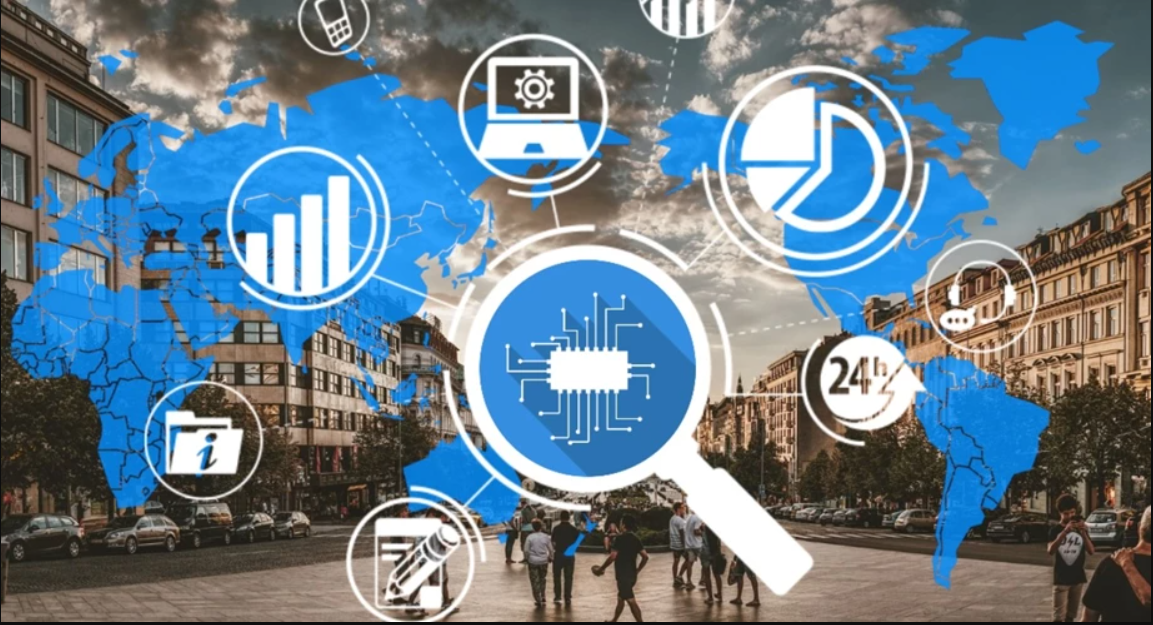Smart Cities of Tomorrow: How AI is Revolutionizing Urban Planning
The blog discusses the ways in which artificial intelligence (AI) is revolutionizing urban planning and shaping the smart cities of tomorrow. It highlights that AI can help city planners make data-driven decisions by analyzing vast amounts of data generated by various sources, such as sensors, cameras, and mobile devices. The blog discusses various ways in which AI can be used to manage traffic, energy, waste, improve public safety, citizen engagement, emergency response, and urban planning and design. The conclusion stresses the importance of using AI ethically and transparently, with a focus on creating value for citizens and the environment.

The concept of smart cities is gaining more and more traction in today's world, as cities around the globe are facing unprecedented challenges such as population growth, climate change, and an ever-increasing demand for resources. These challenges have made it necessary for city planners to think creatively and utilize innovative solutions to make cities more livable, sustainable, and efficient. One of the most promising technologies that are shaping the future of smart cities is artificial intelligence (AI).
AI is revolutionizing urban planning by enabling cities to leverage big data to make smarter, data-driven decisions. By analyzing vast amounts of data generated by various sources such as sensors, cameras, and mobile devices, AI can help cities understand how people move, interact with their surroundings, and use resources. This, in turn, can help city planners optimize urban infrastructure, make more informed decisions, and provide better services to citizens.
Here are some of the ways in which AI is revolutionizing urban planning and shaping the smart cities of tomorrow
-
Traffic management: One of the biggest challenges faced by urban planners is managing traffic flow in cities. AI-powered traffic management systems can help reduce congestion and improve road safety by analyzing real-time traffic data and optimizing traffic signals accordingly. By using predictive algorithms, AI can also forecast traffic patterns and adjust traffic flows to prevent traffic jams before they occur.
-
Energy management: Energy consumption is a major contributor to carbon emissions and climate change. AI-powered energy management systems can help cities monitor energy usage in buildings, streetlights, and other infrastructure and optimize energy consumption. This can help reduce energy waste and lower carbon emissions, making cities more sustainable.
-
Public safety: AI-powered surveillance systems can help improve public safety by monitoring public spaces and alerting authorities to potential security threats. Facial recognition technology can also help law enforcement agencies identify suspects and prevent crime.
-
Waste management: Efficient waste management is crucial for the health and sustainability of a city. AI-powered waste management systems can help optimize waste collection routes, identify recycling opportunities, and reduce landfill waste.
-
Citizen engagement: AI-powered chatbots and virtual assistants can provide citizens with personalized information and assistance. They can help citizens navigate city services, provide real-time information on public transportation, and answer questions about city regulations and policies.
-
Emergency response: AI-powered emergency response systems can help emergency services respond to incidents faster and more efficiently. By analyzing real-time data from various sources, such as traffic cameras and weather sensors, AI can help emergency services understand the scope of an incident and deploy resources accordingly.
-
Urban planning and design: AI can help urban planners design more efficient and sustainable cities. By analyzing data on urban demographics, traffic patterns, and resource consumption, AI can help urban planners make more informed decisions on issues such as zoning, transportation, and infrastructure development.
In conclusion, AI is poised to revolutionize urban planning and shape the smart cities of tomorrow. By leveraging the power of big data and machine learning, AI can help cities become more livable, sustainable, and efficient. However, it is important to ensure that AI is used ethically and transparently, with a focus on creating value for citizens and the environment. By doing so, cities can leverage AI to create a brighter and more sustainable future.










